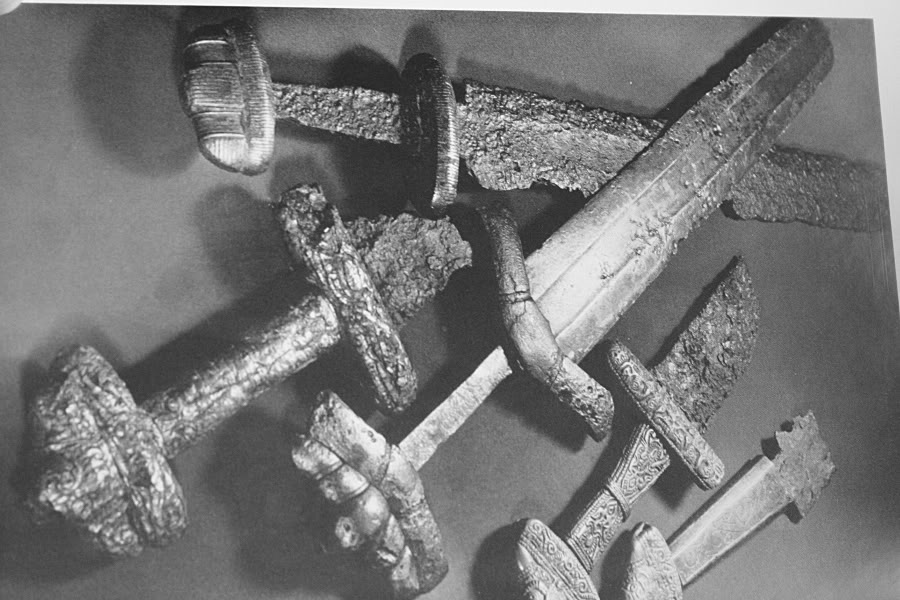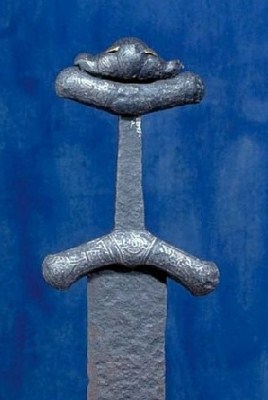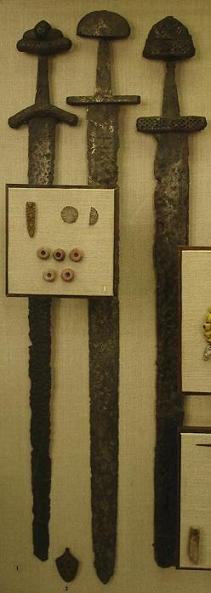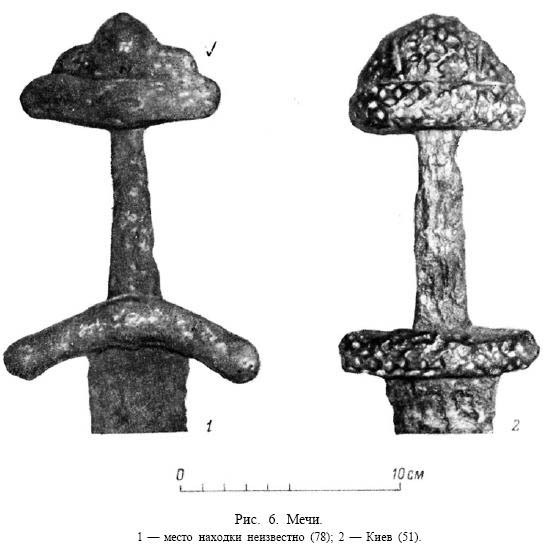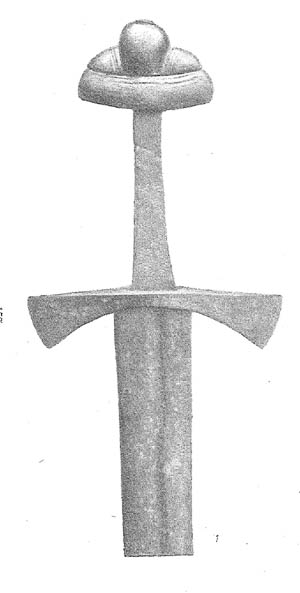Posts: 1,088 Location: Finland
Tue 01 Mar, 2011 4:52 am
There are a number of these and closely related forms in István Rácz's photo book
Viikinkien perintö. I don't have a scanner and my place is kinda cramped and poorly lit, so I'm sorry about the quality of my photos of his photos, but here you go... I'll translate the captions for everybody's convenience while I'm at it.
"86. A sword found in Södermanland, Sweden, made in the late 10th Century. - The sword's pommel is shaped like two bears looking in opposite directions. The pommel, upper guard and cross are decorated with spirals and animals with dotted bodies. The decoration is in the so called Mammen style. Södermanland Södertälje, SHM 20981."
(Perhaps not quite a type Z, with the curving instead of angled guards, but whatever, might as well throw it in. And I find these double-beast pommels an interesting variation on the five lobes of type Z.)
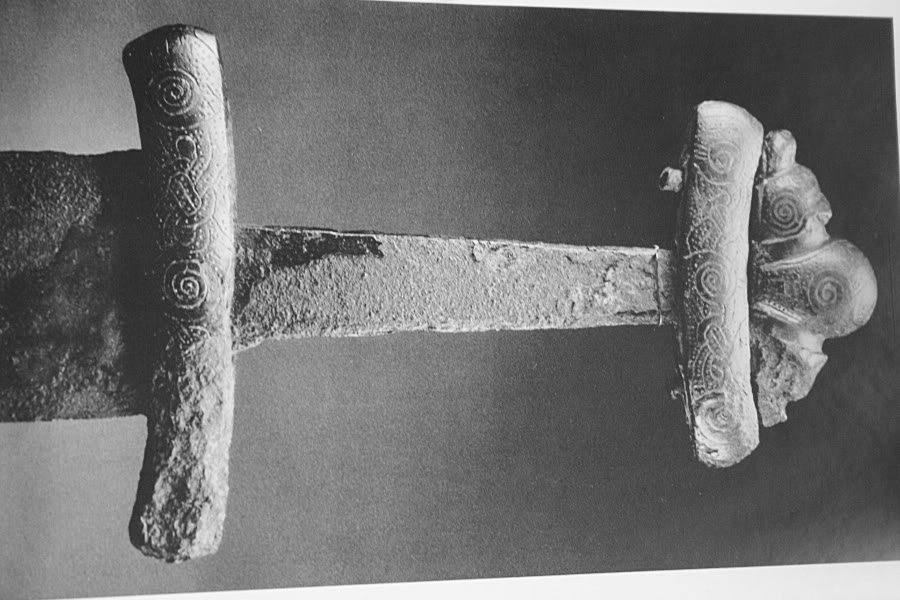
"87. Two 10th Century swords found in central Sweden. - There is silver inlay on the guards and pommels of both swords. Both blades feature a wide and shallow central groove, the purpose of which is to lighten the blade without compromising durability. The blade of the sword on the right has a "damascene" texture in the groove, produced by forging together different kinds of steel. Left Södermanland Österhaninge Norrby, SHM 20832. Right Dalarna Söllerö Bengtsarvet, SHM 22293."
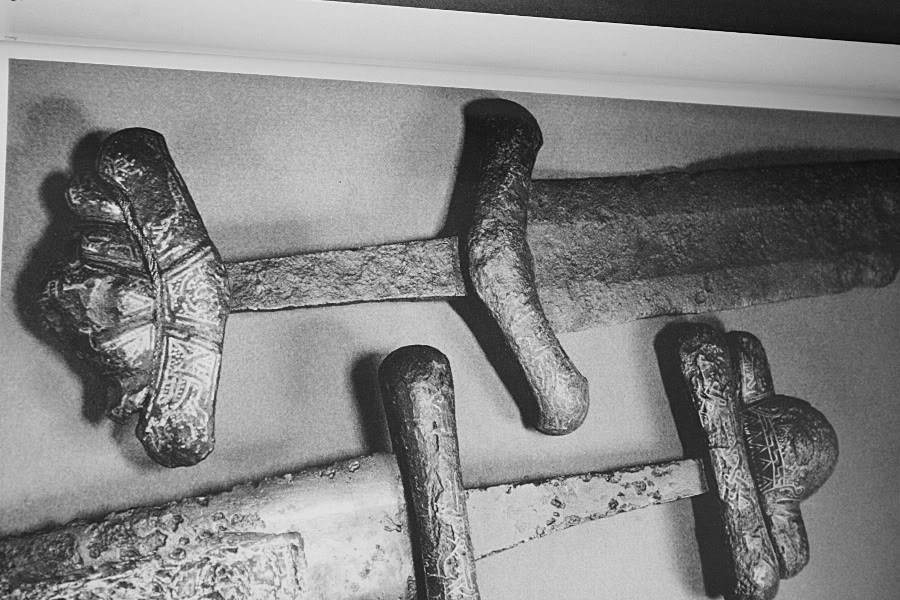
"92. A sword, a battle axe and a spear from Sweden. - The axe's flats and the spearhead's socket are decorated with silver inlay. The sword's hilt is gold. A sword was a particularly valued gift that a king might give to a trusty
hirdman or other favorite. The
Kringla Heimsins epic tells of a sword by the English king Adalstein to his adopted son Hakon, later the king of Norway: "King Adalstein gave Hakon a sword, the grip and guard of which were gold. The blade was even better; with it Hakon cleft a millstone down to its hole. It was then called Millstonebiter. It is the best sword of all ever brought to Norway. Hakon had it until his death." The sword: Skåne Östra Vemmenshös, SHM 4515. The axe: Småland Hultsjö Prästgården, SHM 437. The spearhead: Öland Torslunda Kåtorp, SHM 14913."
(I included this one mainly because of the angled guards... the pommel is lost, but it
could have been a five-lobed type Z, you know? :))
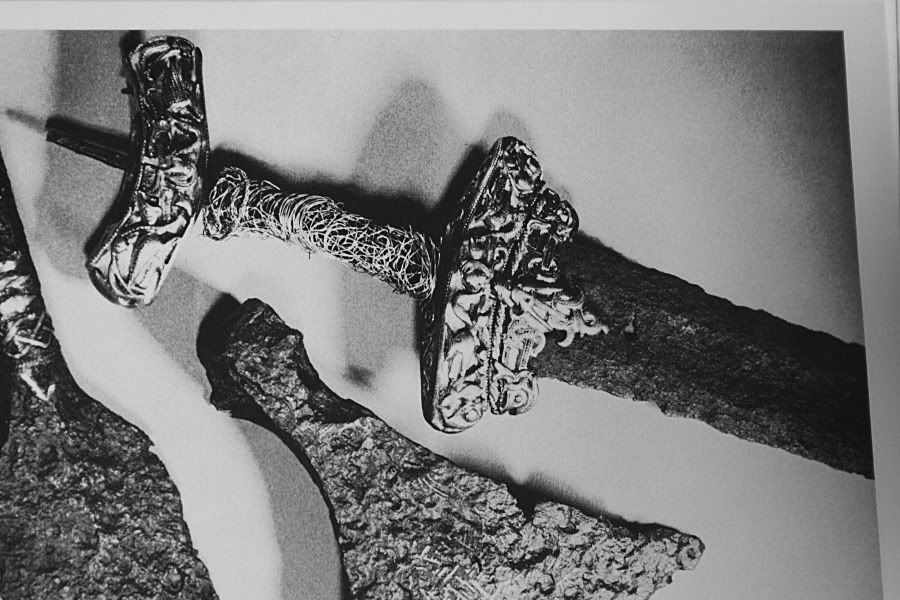
"98. Swords found in Finland. - The three swords on the left belong to the Viking period. The two hilts on the right are from a later date. They belong to the so called Karelia crusade period. [I think this refers to the Third Swedish Crusade.] A peculiar form of decorative art developed in Karelia in the 12th Century, combining ancient vine and animal motifs. Some of these were borrowed from Scandinavian Viking art. Left to right: Finland Proper Perniö Tiikkinummi, KM 7752:37. Finland Proper Maaria Taskula, KM 10842:39. Satakunta Vesilahti Hukari, KM 2886:11. Karelia Kaukola Kekomäki, KM 2995:75. Karelia Sakkola Kiviniemi, KM 7810."
